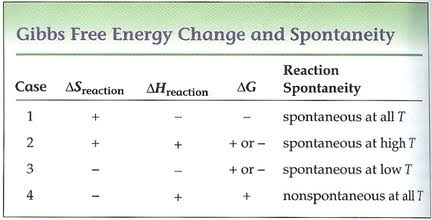I know that entropy is the measure of the randomness of particles within a system, but how would it affect the tendency of the reaction? Would it just increase or decrease the chance of the reaction occurring, based on what change in enthalpy is?
-
2$\begingroup$ See Gibbs free energy. $\endgroup$– Avyansh KatiyarCommented Feb 24, 2018 at 3:56
-
$\begingroup$ Entropy in a sense decides how energy is distributed. More entropy, more even distribution of energy. Consider a reaction with high activation barrier. If that reaction is producing high entropy then, the chances of the reverse reaction are decreased as increasing entropy decreases the probability of the product molecules acquiring enough energy for the reverse reaction. $\endgroup$– Apoorv PotnisCommented Feb 24, 2018 at 4:07
1 Answer
Entropy ($S$) is a measure of the disorder in a system.
In a closed system, entropy always increases over time. In an open system, energy can be added to a system to cause a decrease in entropy, but this is not necessarily a spontaneous reaction.
A reaction will be spontaneous if the change in free energy, $\Delta G$, is negative.
Quantitatively, if entropy increases, and the reaction enthalpy is exothermic $(\Delta H<0)$ or weakly endothermic ($\Delta H>0$ and $\Delta H < T\Delta S$), the reaction becomes spontaneous according to the free energy equation.
Since the observable universe is essentially a closed system, entropy will continue to increase until the universe essentially ceases to exist.
This way an increase or decrease(sometimes) in the randomness can cause a reaction to occur.
Here is a table relating to spontaneity and signs of $\Delta G$:

